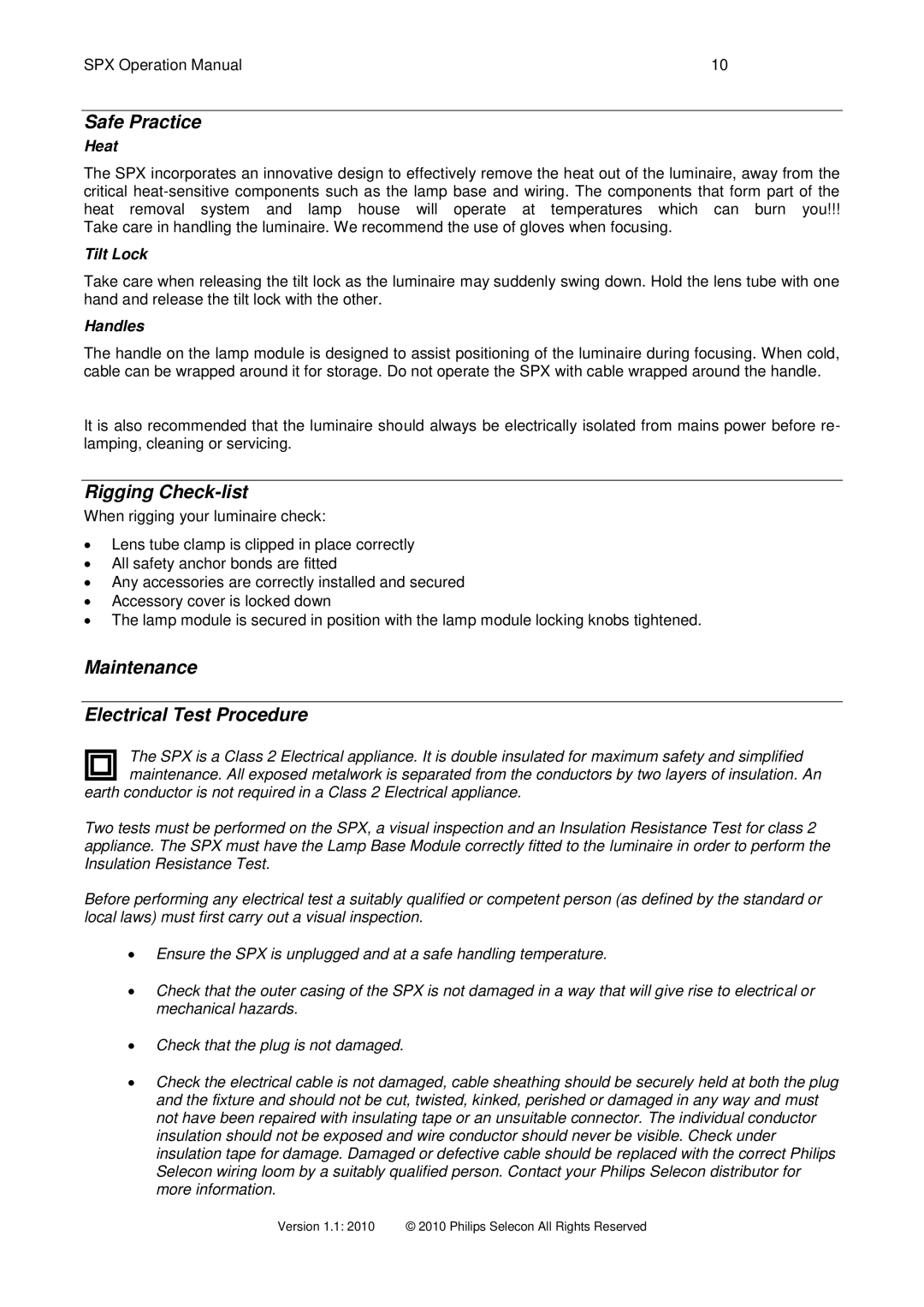
SPX Operation Manual | 10 |
Safe Practice
Heat
The SPX incorporates an innovative design to effectively remove the heat out of the luminaire, away from the critical
Tilt Lock
Take care when releasing the tilt lock as the luminaire may suddenly swing down. Hold the lens tube with one hand and release the tilt lock with the other.
Handles
The handle on the lamp module is designed to assist positioning of the luminaire during focusing. When cold, cable can be wrapped around it for storage. Do not operate the SPX with cable wrapped around the handle.
It is also recommended that the luminaire should always be electrically isolated from mains power before re- lamping, cleaning or servicing.
Rigging Check-list
When rigging your luminaire check:
∙Lens tube clamp is clipped in place correctly
∙All safety anchor bonds are fitted
∙Any accessories are correctly installed and secured
∙Accessory cover is locked down
∙The lamp module is secured in position with the lamp module locking knobs tightened.
Maintenance
Electrical Test Procedure
The SPX is a Class 2 Electrical appliance. It is double insulated for maximum safety and simplified maintenance. All exposed metalwork is separated from the conductors by two layers of insulation. An
earth conductor is not required in a Class 2 Electrical appliance.
Two tests must be performed on the SPX, a visual inspection and an Insulation Resistance Test for class 2 appliance. The SPX must have the Lamp Base Module correctly fitted to the luminaire in order to perform the Insulation Resistance Test.
Before performing any electrical test a suitably qualified or competent person (as defined by the standard or local laws) must first carry out a visual inspection.
∙Ensure the SPX is unplugged and at a safe handling temperature.
∙Check that the outer casing of the SPX is not damaged in a way that will give rise to electrical or mechanical hazards.
∙Check that the plug is not damaged.
∙Check the electrical cable is not damaged, cable sheathing should be securely held at both the plug and the fixture and should not be cut, twisted, kinked, perished or damaged in any way and must not have been repaired with insulating tape or an unsuitable connector. The individual conductor insulation should not be exposed and wire conductor should never be visible. Check under insulation tape for damage. Damaged or defective cable should be replaced with the correct Philips Selecon wiring loom by a suitably qualified person. Contact your Philips Selecon distributor for more information.
